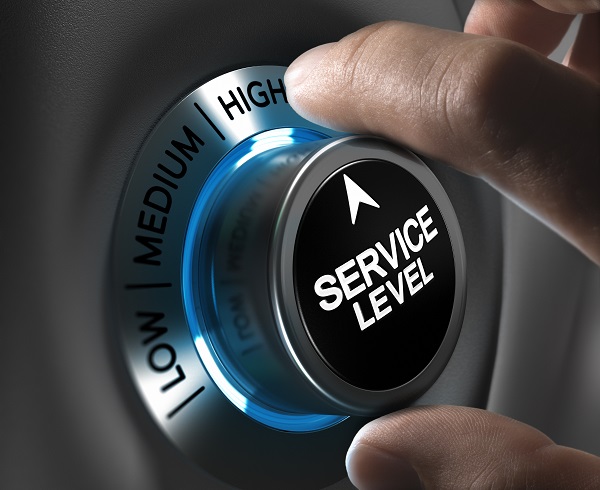Why You Should Never Want Satisfied Customers
Play along if you will. . .
You go to a restaurant. You order a hamburger. You are given a hamburger. The hamburger is good. You leave.
Are you impressed? Are you brimming with joy, thinking“Wow. . .I got what I paid for!” ?
Of course not.
The idea that satisfied customers are a positive outcome is severely over rated. A “satisfied” customer is at best a neutral result. They may not complain but they will not boast about you either. When we set the bar at the level of “satisfied” we miss opportunities to wow our customers and inspire awe. It is only when we are exceptional that people will go out of their way to tell others about their experience.

When I worked in residential AV I worked with several production home builders including DR Horton, Taylor Morrison, Toll Brothers, Shea Homes, and David Weekley Homes. Home builders track customer satisfaction as part of their regular business and third party entities like JD Powers also track the industry to determine where it awards performance.
Two of the builders mentioned above stood out in their efforts to achieve more than “satisfied” customers.
Shea Homes would create surveys and then give each “member” in their communities (they didn’t call them buyers or customers) an “evangelical score”. How likely were the members of their communities to recommend Shea Homes to their family and friends? As you can imagine, you need to elicit a much different emotional response to call people to this level of action versus being quietly satisfied with their purchase. Shea constantly compared the most evangelical of their members with the less enthusiastic to adjust their business processes and create more evangelical members overall.
David Weekley Homes exhibited some similar strategies in creating ecstatic customers. In fact, every trade that worked with them had to undergo a customer service training program called the David Weekley Way to learn what was expected as a partner interfacing with their homebuyers.
David Weekley, like many other homebuilders, would send out a customer satisfaction survey to it’s new homeowners. Their survey had a few key differences. Most surveys of this kind use a 10 point scale that ranges from Not Satisfied to Completely Satisfied. David Weekley used a 5 point scale instead. This type of scale is harder to achieve good marks on, as a customer has to choose between a 4 and a 5 at the top, where in a 10 point scale, a buyer may not give you a 10 but will give you a 9 instead.
To go a step further, David Weekley also changed the description of the numbered ratings from objective terms like Completely Satisfied to emotions like Ecstatic. That will also lower the average score. A buyer on another builder’s survey may answer completely satisfied but it’s harder to describe yourself as ecstatic.
David Weekley Homes wasn’t interested in getting an unemotional 10 on a survey. They were more interested in how their homebuyers actually felt about the home they just bought.
Of course knowing the truth about the experiences you provide can be a scary thing. It is only valuable if you are also willing to do something about it. David Weekley had their buyers rate all of their subcontractors as well to get a picture of where in the process things may be improved. It was also rumored that if anyone answered a 3 or less on any survey question, David Weekley himself would make a visit to the homeowner to find out why.
Now the ideas behind some of InfoComm’s new initiatives and programs like Exceptional Experiences and APEx echo the need for higher standards and using the customer’s feedback as a barometer for performance. Hopefully the 3 year strategic plan they are supposed to unveil at AVEC soon will back that all up.
If you are aiming for satisfied customers stop. You are aiming too low. We all want to set goals that we can achieve in our businesses, but customer satisfaction should be a defacto standard not a goal. Remember, we miss 100% of the goals we don’t set, so set them high and then see what you can do.


